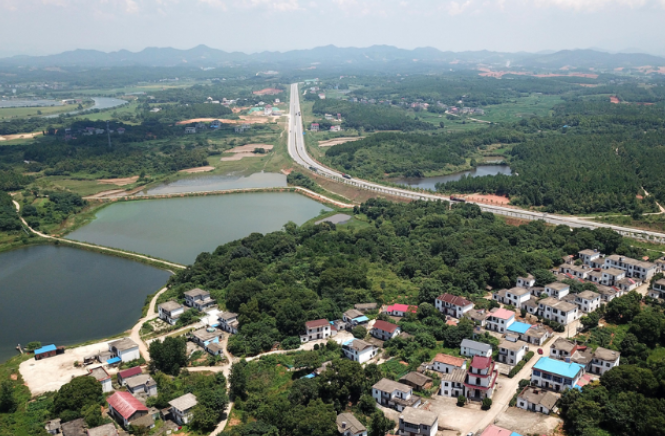LANZHOU, Nov. 17 (Xinhua) -- Li Jingfeng put on gloves, sat on a chair capable of rotating and began his day's work. By operating a handle, he started lifting piles of garbage from an enclosed 30-meter-deep garbage pit, grasping it with a mechanical hand.
This fermented garbage was then placed in a furnace for burning, generating power that was later integrated into the power grid for urban consumption.
Li works in a renewable resource company called Everbright Greentech in Lintao County, northwest China's Gansu Province.
The company collects domestic waste from the neighboring counties and areas, processes it and then burns it for power generation, turning trash into treasure.
The project was put into operation in May 2021. This year alone, it has processed 190,000 tonnes of domestic waste, with the generated power sufficient to meet the consumption demand of nearly 50,000 households for an entire year.
Niu Jianxin, general manager of the company, said the temperature of the furnace is kept at more than 850 degrees Celsius and the smoke data is monitored online for pollution control. The smoke, lingering ash and sewage are all properly disposed of without leakage to prevent secondary pollution.
"Gone are the days when the village was surrounded by piles of garbage. Without any stinky smell, the air is now refreshing," said Wei Jiangang, a villager from the county's Taoyang Township.
The county has established a garbage collection mechanism that covers sorting by households, collection by villages, transportation by townships and processing by the county. This mechanism and the utilization of domestic waste have combined to significantly improve the urban and rural environment.
"Garbage is not useless. Through technology, it can be processed in a more environmentally friendly way, reducing pollution and constantly generating power," said Xu Shude, Party chief of the county.
According to a renewable energy development plan issued in June 2022 by China's nine departments, including the National Development and Reform Commission and the National Energy Administration, the country will steadily develop urban domestic waste incineration for power generation.
Mao Jinhuang, a professor at Lanzhou University, said domestic waste is misplaced resources.
"China's treatment of domestic waste is developing in a better direction, striving to improve the living environment and also bring economic benefits," said Mao.




 A single purchase
A single purchase









